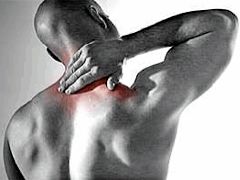Feb. 1 (Bloomberg) -- Massage may be as effective as aspirin or other pain medicines to calm the effects of intense exercise, suggested researchers who have found it slows production of chemicals in the body linked to inflammation.
About 18 million U.S. adults receive massages yearly, according to the Centers for Disease and Control and Prevention’s 2007 National Health Interview Survey. Although research on use of the therapy is limited, studies have suggested it may be useful in low-back pain and neck pain, and that there are few safety risks from the treatment.
“It may be that massage is as beneficial as commonly prescribed medications, but we just don’t know that yet,” said Simon Melov, a study author and an associate professor and director of genomics at the Buck Institute for Research on Aging in Novato, California, in a telephone interview. “It seems possible. It’s not just psychological.”
It may also be worthwhile to see if chronic muscle inflammation and pain from causes other than exercise can be treated by massage as well, Melov said.
 The subjects were exercised to exhaustion, which took about 70 minutes. One leg was massaged; the other wasn’t. Both were biopsied immediately after the therapy and 2.5 hours later. The massaged leg showed slower production of interleukin-6 and tumor necrosis factor alpha, both linked to inflammation, according to the report.
The subjects were exercised to exhaustion, which took about 70 minutes. One leg was massaged; the other wasn’t. Both were biopsied immediately after the therapy and 2.5 hours later. The massaged leg showed slower production of interleukin-6 and tumor necrosis factor alpha, both linked to inflammation, according to the report.
New Mitochondria
The researchers also found that the legs receiving the massages showed signals of the process by which new mitochondria are formed. Mitochondria are the engines of the body’s cells, which process nutrients to create energy.
Delayed-onset muscle soreness is usually due to cell damage and tears in the muscle fiber, which cause swelling and soreness from an inflammatory response, Melov said.
--Editors: Reg Gale, Angela Zimm
To contact the reporter on this story: Elizabeth Lopatto in New York at elopatto@bloomberg.net.
To contact the editor responsible for this story: Reg Gale at rgale5@bloomberg.net.

No comments:
Post a Comment